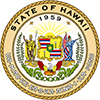Primary Care Physician (PCP) reimbursement enhancement in accordance with
Section 1202 of the Affordable Care Act (ACA)
Payment of PCP reimbursement enhancement- revised August 2015
The Department of Human Services (DHS) Med-QUEST Division (MQD) is extending its enhanced reimbursement rate through December 31, 2015, for certain primary care services provided by eligible primary care physicians (PCP). The initial two-year provision ended December 31, 2014 and will be extended through December 31, 2015.
The MQD will use the same reimbursement methodology that has been in place under Section 1202 of the Affordable Care Act. Under this provision, Medicaid programs were required to increase reimbursement to Medicare rates for certain primary care services provided by eligible PCPs.
HI Medicaid codes covered in PCP enhancement SPA
General Background Information
For purposes of the increased reimbursement, eligible primary care physicians are considered those who:
1) Self-attest to practicing in family medicine, internal medicine, or pediatric medicine, and to subspecialists of those specialties as recognized by the American Board of Medical Specialties (ABMS), American Osteopathic Association (AOA), or American Board of Physician Specialties (ABPS); and
2) Have either an active board certified in that specialty or had 60 percent of their last calendar year’s Medicaid claims for Evaluation and Management and vaccine administration codes specified below.
Receipt of self-attestation will be required prior to receiving increased reimbursement payments.
The eligible primary care services are Evaluation and Management (E&M) codes 99201 through 99499 and vaccine administration codes 90460, 90461, 90471, 90472, 90473, or their successor codes that are covered by the Hawaii Medicaid program with a date of service between January 1, 2013 and December 31, 2014. Services provided by non-physician professionals under the supervision of an eligible physician are eligible for increased reimbursement at the same percentage of the physician’s reimbursement as was in effect on July 1, 2009. The list of approved E&M codes will be provided on this webpage when approved by Centers for Medicare & Medicaid Services (CMS).
The MQD anticipates that the increased reimbursement for services provided through the Medicaid FFS and managed care programs (e.g. QUEST and QExA) will occur quarterly in lump sum payments. Supplemental payments to physicians for services provided through the managed care programs will be paid separately by each health plan. Payments in the FFS program will be made directly to physicians. MQD is in the process of obtaining Centers for Medicare & Medicaid Services (CMS) approval for this methodology. Health plans will not make increased reimbursement payments until MQD receives approval by CMS.
Self-Attestation Process
All primary care physicians will need to self-attest on the DHS Medicaid On-line (DMO) system. Self-attestation is an electronic process; MQD does not have a process for primary care physicians to self-attest manually. Below is a link for the user guide for completing self-attestation.
Link for user guide
The electronic system for processing self-attestations begins on March 18, 2013. The link for the DMO is listed below:
Link for DMO
After primary care physicians have completed their self-attestation process, they may self-attest for any non-physician practitioners (i.e., nurse practitioner or physician assistant) who are under their personal supervision. Non-physician practitioners are not eligible for increased reimbursement if they are not under the personal supervision of an eligible primary care physician.
If a primary care physician does not have access to the DMO site, please click on the “Create a New Account” link at the DMO site listed above to create a DMO account with the Department of Human Services, Medicaid Online.
Timeframe for Self-Attestation
Physicians will have until June 30, 2013 to self-attest for retroactive payments back to January 1, 2013. Thereafter, self-attestation will be retroactively applied to the start of the quarter in which self-attestation occurs. A physician only needs to self-attest once.
Example #1
A physician self-attests on May 15, 2013. All increased reimbursement for primary care services for Medicaid-allowable E&M codes will be retroactive to January 1, 2013.
Example #2
A physician self-attests on August 15, 2013. All increased reimbursement for primary care services for Medicaid-allowable E&M codes will be retroactive to July 1, 2013.
Both MQD and CMS will perform audits of self-attestation and verification of payment. Primary care providers should assure that all information provided as part of self-attestation is accurate.




